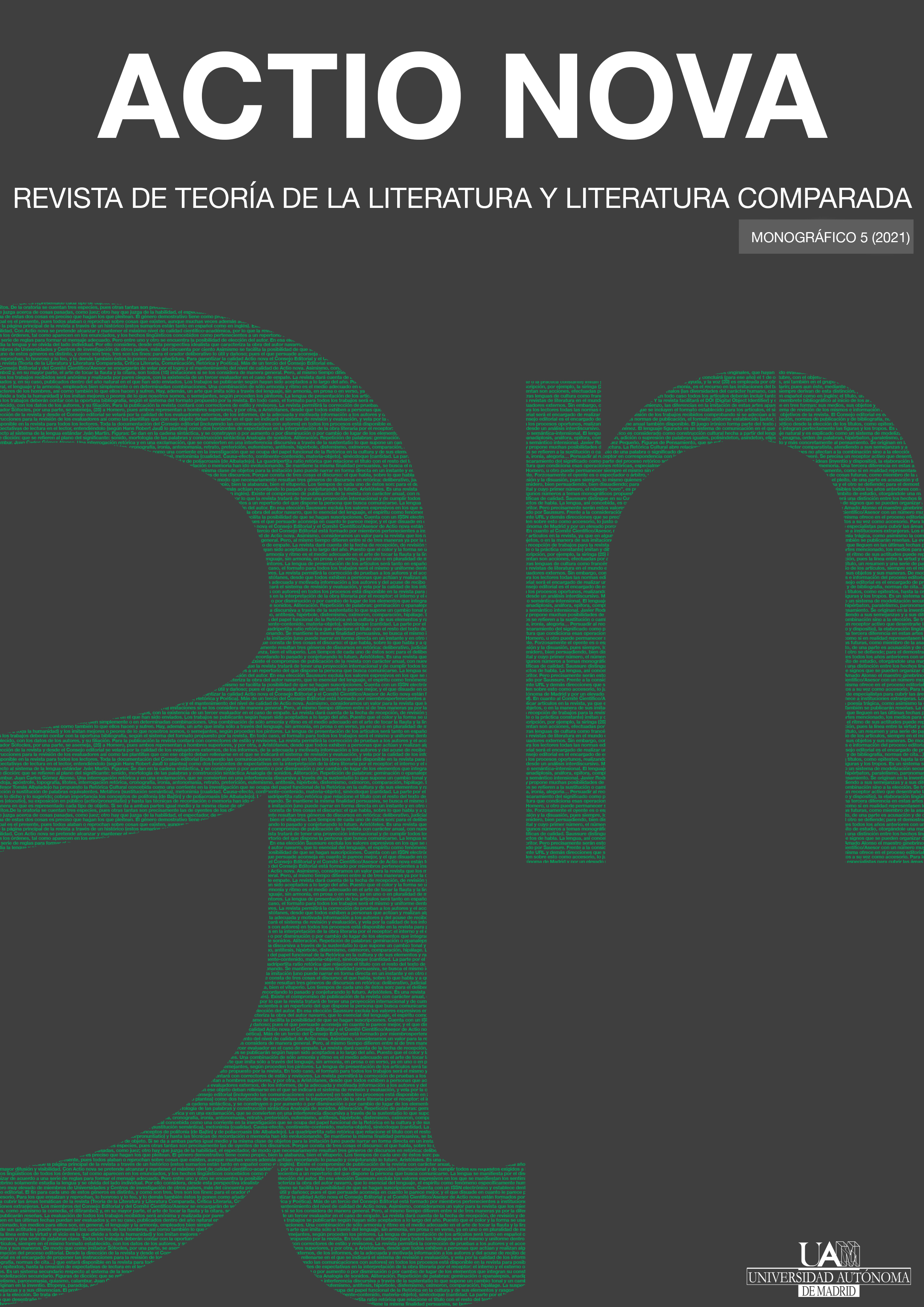Keywords:
forclusion, repression, unconscious, Theory of Translation, Lacan, PsychoanalysisCopyright (c) 2021 Manuel Asensi Pérez

This work is licensed under a Creative Commons Attribution-NonCommercial 3.0 Unported License.
Abstract
Translation is an essential dimensión in Lacan’s work. It combines the difficulty of translating his mannerist style into other languages, and the practice of translation carried out by Lacan himself, especially in relation to Freud, but also in relation to other authors such Poe, Sophocles, Plato, Joyce, and a long etcetera. In this work, three concepts that have great importance within Lacanian theory have been taken as a point of reference: unterdrückt, verdrängt and Verwerfung. One of the theses that maintained throughout the following pages is that the relationship between unterdrückt and verdrängt it is not only a lexical or semantic problema, but that translation is present as one of the constitutive elements of the unconscious. Hence the importance of that topic. On the other hand, the term Verwerfung posed two types of problems: one for Lacan when he assimilated freudian texts, and another for the Spanish (or English, etc) translators of the same term
Downloads
References
Alain-Miller, Jacques (1999): El establecimiento de «El Seminario» de Lacan, Buenos Aires, Tres Haches.
De Man, Paul (1983): Blindness and Insight. Essays in the Rhetoric of Contemporary Criticism, Minneapolis, University of Minnesota Press.
Derrida, Jacques (2001): La tarjeta postal. De Sócrates a Freud y más allá. México, Siglo XXI.
Even-Zohar, Itamar (1999): «Polisistemas de cultura», en Martínez, Monserrat (1999), Teoría de los polisistemas, Madrid, Arco Libros: 71-96.
Freud, Sigmund (1980): Obras completas. Volumen 6. Psicopatología de la vida cotidiana (1901), Buenos Aires, Amorrortu.
Freud, Sigmund (2003): Obras completas. Volumen 17. De la historia de una neurosis infantil (el «Hombre de los Lobos») y otras obras (1917-1919), Buenos Aires, Amorrortu.
Freud, Sigmund (2012): Obras completas. Volumen 14. Contribución a la historia del movimiento psicoanalítico. Trabajos sobre metapsicología y otras obras (1914-1916), Buenos Aires, Amorrortu.
Lacan, Jacques (1955-56): Les psychoses, Paris, Staferla.
Lacan, Jacques (1957-58): Les formations de l’inconscient, Paris, Staferla
Lacan, Jacques (1966): Écrits. Paris, Seuil. Traducción al español de Tomás Segovia (1971), Escritos 1 y 2. México, Siglo XXI. Edición revisada por Juan David Nasio y Armando Suárez (2009), Escritos 1 y 2. México, Siglo XXI.
Lacan, Jacques (1999): El seminario de Jacques Lacan. Libro 5. Las formaciones del inconsciente, Buenos Aires, Paidós. Traducción al español de Enric Berenguer.
Lacan, Jacques (2015): El seminario de Jacques Lacan. Libro 3. Las psicosis, Buenos Aires, Paidós. Traducción al español de Juan-Luis Delmont-Mauri y Diana Silvia Rebinovich.
Mesdchnnic, Henri (1973). Por la poétique: épistemologie de l’écriture poétqie de la traduction, Paris, Gallimard.
Neubert, A. y Shreve, G. M. (1992): Translation as Text, Kent-Ohio-London, The Kent State University.
Tizio Domínguez, Hebe M. (1990): Psicoanálisis y lenguaje. La aportación original de Jacques Lacan, Tesis doctoral presentada en la Universidad de Barcelona.
Toury Gideon (1995): Descriptive Translation Studies and beyond, Amsterdam/Philadelphia, Johns Benjamins Publishing Company. Traducción al español y edición de Raquel Merino-Álvarez y Rosa Rabadán: Toury, Gideon (2004): Los estudios descriptivos de traducción y más allá. Metodología de la investigación en estudios de traducción, Madrid, Cátedra.
